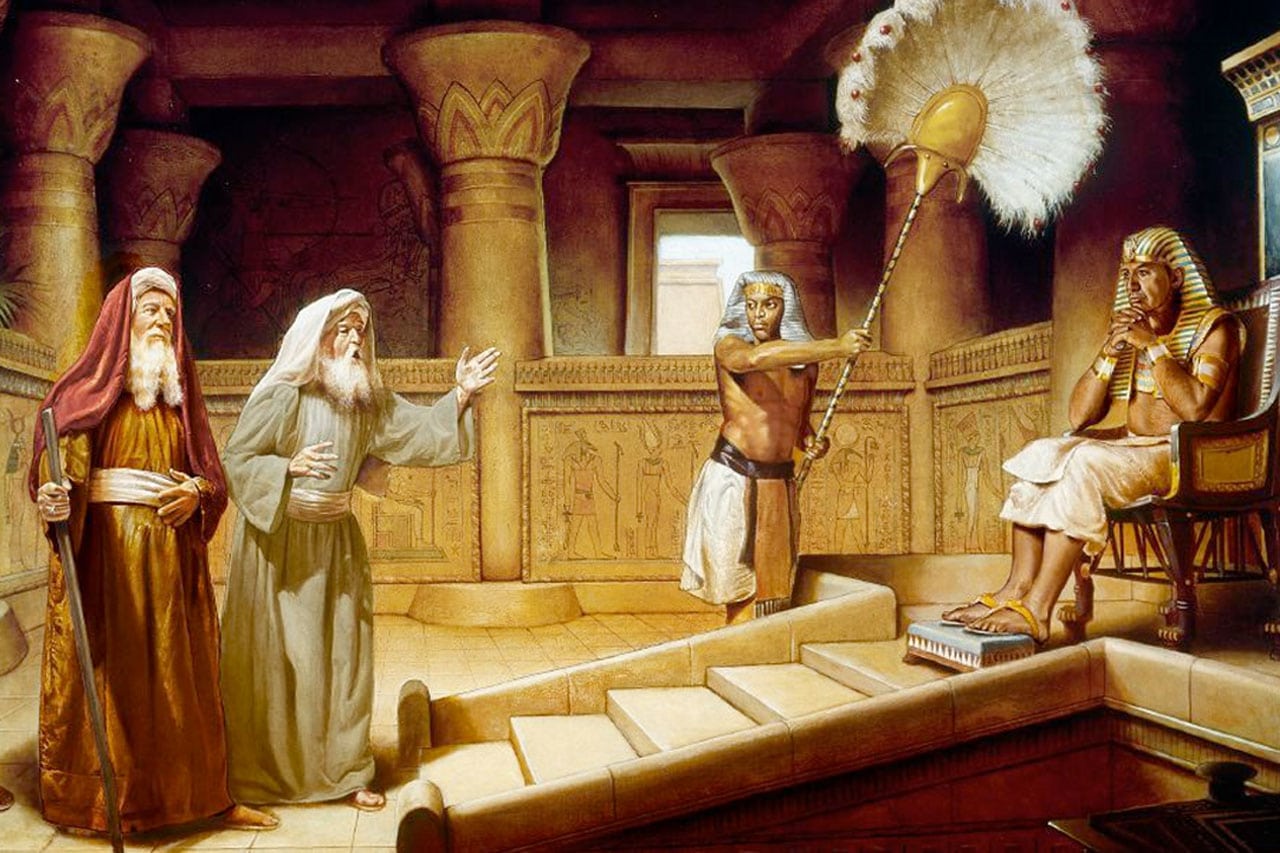
There are a lot of things we know from history. But the things we don’t know vastly outnumber them.
Yesterday evening I was in bed, taking a nap after supper, while Patty watched a documentary on the catastrophic volcanic eruption at Thera, sometime between 1642-1540 B.C. Right there we have a 102-year finagle factor.
Some scholars were trying to tie the Thera disaster to the plagues of Egypt related in the Bible. They thought the effects of the eruption could account for most of them. But of course, one of the scholars added, the whole Biblical account of Moses and the Exodus was…ahem!… “pure fiction.” He said it like he knew it for a fact.
It troubled me to hear that. Here we’ve got these sages who are held up to us as persons who know what they’re talking about. It’s almost a given that “Bible scholars” don’t believe the Bible.
In the 18th century, Bible scholars didn’t believe an Assyrian Empire ever existed. Dead wrong. In the 19th century, they didn’t believe there’d ever been a Hittite Empire. Wrong again.
Given the scope of the disaster, the Thera eruption has very little documentation. The physical evidence is very strong, but it seems the people who experienced this horrific event were too busy trying to stay alive–or too busy dying–to spend much quality time writing about it.
We don’t know which Pharaoh ruled Egypt in Moses’ time. The Egyptians excelled at declining to document events that made them look weak or helpless. Maybe Thera had something to do with the plagues, and maybe it didn’t.
I take the Bible as truth, even if I don’t always understand it. But it seems we’re living in an age of unbelief: and I would say that accounts for all the sorrier aspects of this age. And as for the stuff our Wise Men do believe in–well, look at it. You don’t know whether to laugh or cry.
I believe the Bible. Period.
There are a series of videos known as Patterns of Evidience which discuss the timeline of the Exodus events. What I find most interesting is that the Exodus preceded a period of decline for Egypt. By the end of the plagues, the Egyptians wanted no more risk of offending the God of the Hebrews and were more than happy to give the Israelites anything that wasn’t nailed down. They lost the slave labor of the Israelites and lost their army at the Red Sea. It’s no wonder that the fortunes of the Egyptians changed for the worse at that time.
The Bible is about the history of God’s dealings with fallen humans. The establishment of Abraham’s seed into a nation was an essential step in the redemption of mankind. This was the source of the Messiah and established a legal groundwork for the authority of Christ’s reign. Take the Exodus out of the equation and an essential element of our deliverance has been lost.
Is all the symbolism in the Bible just for show, or is it there to confirm that God’s Word was created according to His plan? I know when I read the Bible I hear the voice of God speaking personally to me. No other book has ever done that for me.
The Ipuwer Papyrus (13th century B.C.) chronicles the ten plagues and gives credence to the biblical account. I’ve watched the same video as unknowable and they contend that our understanding of Egyptian chronology is off and that’s why archeologists have been unable to find evidence of the Exodus. But when that chronology is adjusted, everything starts to fit. The problem is they are never going to change the chronology because so much is tied to it. So they will forever be looking in the wrong time.
They have surmised a “dark period”, for which there is no historical record, and inserted this into the timeline. Take that “dark period” out, and the Bible’s record works. So, the “dark period” exists entirely in their collective imagination. A lot of evolution seems to rely upon the same sort of logic.
Ancient Egypt also had no conception of honest history. If a national leader–Queen Hatshepsut, for instance–fell out of political favor, they would chisel the names and faces off her monuments and pretend she’d never existed.
That’s the other thing. The Egyptians would not likely want to advertise they got bested by a bunch of Hebrew slaves and their God. They would have censored it fast than Big Tech.
They were great ones for lying about their history. Ramesses II had a black belt in it.